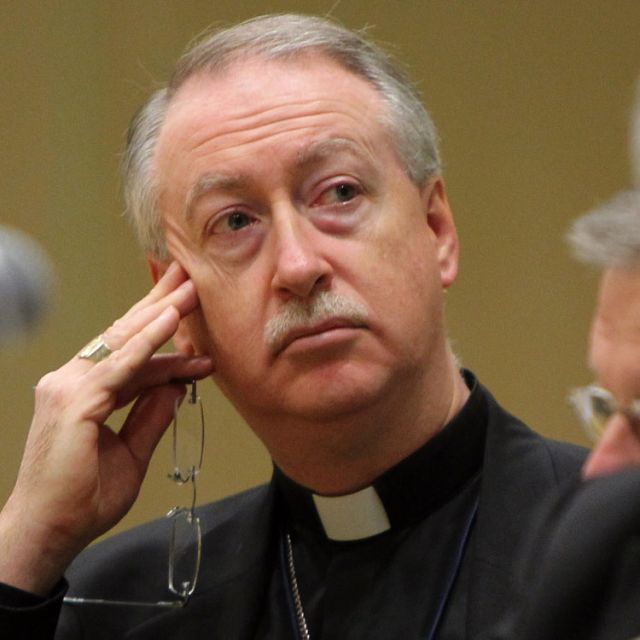“Your focus on agriculture and nutrition ahead of the G-8 meeting is timely,” Archbishop Richard Smith wrote in a June 4 letter. “In a world that has made great strides in improving food production and distribution, far too many of God’s children still go to bed hungry or suffer from a lack of nutrition, a tragedy that has life-long consequences for health and educational achievement. In particular, there is a need to strengthen assistance to African countries in order to improve local agriculture.”
Heads of other episcopal conferences have sent the same text to their respective national leaders.
Joining the CCCB are the conferences of England and Wales, France, Germany, Ireland, Italy, Japan, the Russian Federation, Scotland and the United States, as well as the Commission of the Bishops’ Conferences of the European Community.
The letter praised the timeliness of the “G-8’s attention to tax evasion, trade and transparency, but it urged the G-8 leaders to make sure trade and trade rules serve the universal common good by including the interests of poor or vulnerable developing countries.
“It is counterproductive to provide agricultural development assistance on the one hand and then to use unfair agricultural trade policies that harm the agricultural economics of poorer nations on the other,” the letter says.
“The G-8’s emphasis on transparency is critical,” it says. “Human dignity demands truth, and democracy requires transparency. With more and better information, civil societies, including faith-based organizations, can hold their governments accountable and help insure that resources reduce poverty and improve the health of the whole society.”
The letter cites Pope Francis’ inaugural homily in which he said he would “open his arms to protect all God’s people and embrace with tender affection the whole of humanity, especially the poorest, the weakest, the least important.”
“The G-8 nations, as leaders in the world community, should do no less,” it says.
The letter cites the Catechism of the Catholic Church concerning the moral obligation of citizens to pay taxes to contribute to the common good and of states to ensure its resources are distributed justly.
“In word and gesture, our Holy Father, Pope Francis, reminds all of us to act in ways that protect ‘the poorest, the weakest, the least important,’ “ the letter says. “By asking first how a given policy will affect the poor and the vulnerable, you can help assure that the common good of all is served. As a human family we are only as healthy as our weakest members.
“We pray that your meeting will be blessed by a spirit of collaboration that enables you to take steps to improve nutrition, reduce hunger and poverty, and strengthen just tax, trade and transparency policies for the common good of all,” the letter says, concluding with assurances of prayers for God’s blessings on Harper’s work.


